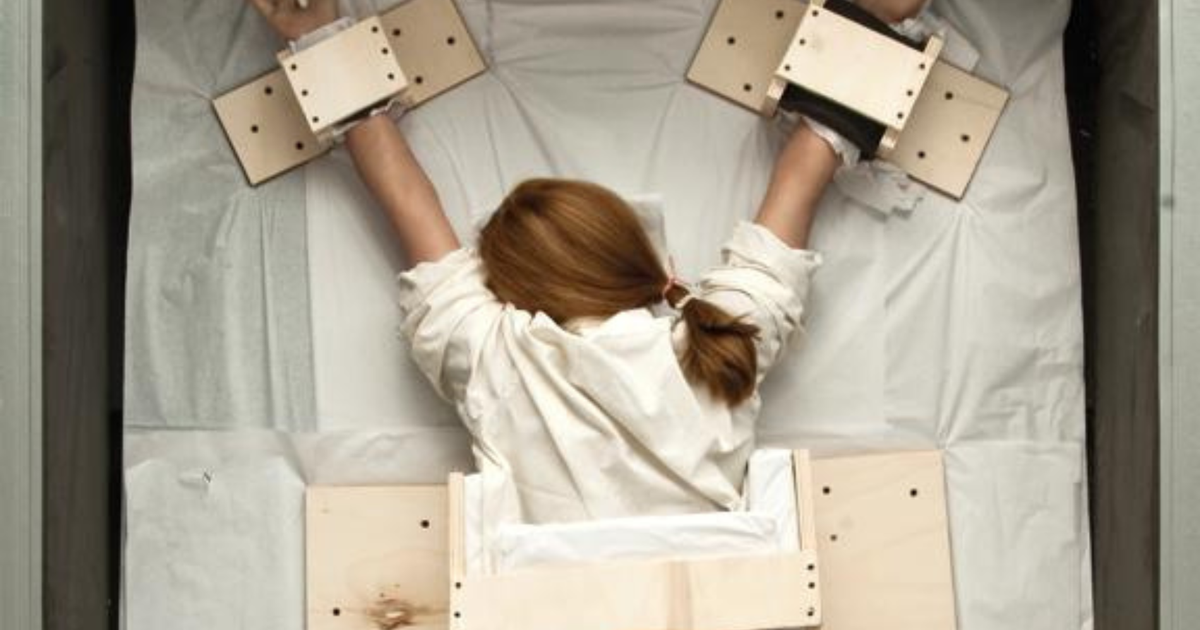It happens with some writers —and sometimes, less so, with some authors— who are vampirized by their youth photos.
Sylvia Plath in a bikini on the beach, Joan Didion leaning on her Corvette.
Australian author Charmian Clift also has some impossibly attractive photos, likely to be stamped on a duffel bag
.
One in which she appears in profile, dressed in ancient Greek;
another, with a white shirt, full skirt and hair blowing in the wind, the living image of the timeless style that magazines always talk about.
And a third, also key to her legend, in which she comes out leaning on Leonard Cohen's shoulder, who is in the middle of the song, brandishing a guitar.
Clift may or may not have had an affair with Cohen on the island of Hydra, where they both hung out in the bohemian expat group in the early 1960s, but it's also true that, as Ronan Farrow said about the possibility that Frank Sinatra It was her father, any woman who came across Leonard Cohen could make out with him.
More information
Sylvia Plath in her own words
Clift, which remained unpublished in Spanish, has reached bookstores thanks to the Gatopardo label, which has published
Siren Songs
, the book in which the Australian author and journalist recounted the experiences of her first year in Greece, on the island of Kalymnos.
She arrived there in 1954 with her husband, also a journalist and writer George Johnston, and her two young children, Martin and Shane —in Greece they would have the third, Jason—.
The impulse that led them was that of so many other Anglo-Saxons in search of a more authentic life in the warm Mediterranean.
They left their secure newspaper jobs and their London home and moved to a house with no running water on Kalymnos, an island where nearly all the men were then sponge fishers.
What saves the vibrant
Siren Songs
Clift's ability to go above and beyond is short of being a travel book enthusiast dedicated to praising local quaintness.
“His previous experience of Greece had been very brief and as a tourist, and now he knew what day-to-day life was like on a very poor island.
There is a strong current of romanticism and idealism in the book, but Clift is not ignorant of reality.
He sees the poverty, isolation and danger that the workers live, the atavistic, conservative and very gendered structures of the island, and he tries to use his writing to reflect what he sees and what he learns.
He tries to observe and not to judge”, explains Tanya Dalziell, a professor at the University of Western Australia who has published several works around Clift and is the co-author of a book on the Hydra circle.
Siren
Songs
was followed
by Peel me by Lotus
and there the tone changes.
The title is a play on words between Mae West's famous line ("peel me a grape") and the lotus eaters of the
Odyssey
,
who languish swallowing narcotic plants.
In those memoirs, Clift somewhat mocks the community that was beginning to grow on Hydra, and of which they were, at first, the social center.
The actor Peter Finch, the plastic artist Sidney Nolan and the
beatnik poet arrived there.
Allen Ginsberg.
Clift stood among them all as a kind of matriarch.
He liked to defy island norms by wearing trousers and drinking retsina, the local liquor, in taverns, off limits to local women.
But in the end it was she who took care of the children, and although her years in Greece had been very productive, it was clear that Johnston's work had precedent in the house.
“Both of them, and she particularly, took seriously the role they had assumed as senior figures within the expats on Hydra.
They controlled who they accepted or did not accept in their group based on talent and their ability to work.
They immediately recognized Cohen as someone with talent and ambition, destined for great things.
She, however, despised those who pursued some kind of artistic practice for the sake of prestige but lacked the skill or dedication to produce anything worthwhile.
Towards the end, she resented not being able to control Hydra's social life, not being able to stay in the center,” says Dalziell.
Charmian Clift and George Johnston, with their domestic servant Sevasti, in Kálimnos, in 1954. Cedric Flower (Gatopardo Ediciones)
In the many books, songs, photos and poems that were conceived in those years on the island, Clift always appears in the middle, the mistress of all parties.
"It is true that they were in the tavern at noon, but also that they started work at dawn," writes her biographer, Nadia Wheatley, in a text entitled
Remembering Charmian Clift.
“The reason writers went to the port at noon was in the hope that the mail from Athens would include a
royalty check.
.
On one occasion, in Greece, when the payment for a novel was much less than expected, Charmian sat crying on the stairs of her house, saying: it is not that I care that I am poor, but that I know that I am going to remain poor. .
Of course, the poverty of two Australian writers in the Aegean islands was relative and allowed them to continue counting, for example, on the help of a local woman to run the house.
In Kalymnos it was Sevasti, of whom Clift says this in
Siren Songs
: "For the paltry sum of fifty drachmas a week—and there is no fifteen shillings that have been or ever been more satisfactorily spent—Sevasti is ours and we are Sevasti's." .
At least on the islands they understood his way of life.
Like the sponge fishermen, they bought on credit and had an account in the taverns (an account that grew as George bought half the town drinks) and paid when the ship came, like the sponge fishermen.
Not even Sevasti could dry the sheets, Clift also explains in the book.
The houses on the islands were musty, and Johnston, who had physical scars from World War II—his wife, too, enlisted in the Australian Women's Army and became a lieutenant—contracted tuberculosis.
In 1964, she managed to save up for a ticket to Australia.
Soon after, Clift and the children followed.
The return had something triumphant.
Johnston published the autobiographical novel
My Brother Jack,
now considered an Australian classic read in schools.
Clift returned to journalism.
He published a weekly column in the
Melbourne Herald
and the
Sydney Morning Herald .
which placed him in the women's supplement, above the stocking ads, but in which he dealt with everything, including questions of national and international politics, always pushing public opinion to the left and reminding Australians that they still called " home” to England who were in Asia and who owed an irreparable debt to the aboriginal peoples.
The column title was perfect: “Sneaky Little Revolutions”.
In other words, Little furtive revolutions.
Those were, however, difficult years for the couple.
His health continued to deteriorate.
She began to suffer from depression.
Both were still drinking too much, without the alibi of Greek sunsets.
On July 8, 1969, the eve of the publication of a Johnston novel,
Clean Straw for Nothing
, in which Clift's infidelities in Greece were very thinly novelized, she committed suicide by taking an overdose of barbiturates.
She was 49 years old.
A year later Johnston would die, who knows if from illness or remorse.
Martin and Shane, the two children who appear as lovable presences in
Siren Songs
, also met tragic ends.
She committed suicide in 1974. He died in 1994 of complications from alcoholism.
It is this tragic destruction of the family that has led, in part, to grow the legend around them.
In recent years, in Australia there have been biographies, plays, novels and even a memoir that recast the story of Charmian Clift.
She was written in 1994 by a woman named Suzanne Chick in a book in which she proved that the writer was her biological mother, that she had her when she was 19 years old and gave her up for adoption when she was born.
This whole saga has turned the family into literary material and Clift into a kind of “Australian Sylvia Plath”, as she has sometimes been called, despite having little or nothing to do literary with the American.
Charmian Clift and George Johnston, along with their children.
GATOPARDO EDITIONS
“Those who end their lives like Clift – and like Plath – at a young age and in a moment of personal success are always judged with that in mind.
Suicide inevitably casts a shadow over his legend and affects the reception of his writing, and both things have had to escape the clichés of personal tragedy," says Danziell, who maintains, however, that the renewed interest in the work de Clift is not justified by its tragic ending alone.
No one would read or translate 52 years later the books of a beautiful dead woman just because she committed suicide if they weren't good.
Regarding the reasons that pushed her to end her life, she believes that there is no simple explanation.
“The effects of alcohol and her dysfunctional relationship with Johnston had affected her generally upbeat temperament.
There is evidence that he felt pressure to submit his weekly column and finish his autobiographical novel, which he left unfinished and for which he had high hopes.
His death could have been the terribly sad consequence of having those pills too close at hand.”
The image that has remained of her, that of a talented and charismatic woman in constant battle with the mediocrity of the domestic, is not so different from the one she projected for herself.
In 1960, in the midst of Hydra's golden years, New Zealand writer Redmond Wallis visited the couple on the island and wrote this: "She is potentially a better writer than George, but she has deliberately created a portrait of herself that I believe that you want to appear on your bio one day.
She is the queen of a literary group, beautiful, brilliant, compassionate, but also the mother of three children who runs a house.
Sweating blood against impossible odds, a husband prone to unfounded jealousy, the heat, the creative challenges, the children, the trouble other people cause him… And yet producing art of great value.”
50% off
Subscribe to continue reading
read without limits
Keep reading
I'm already a subscriber















